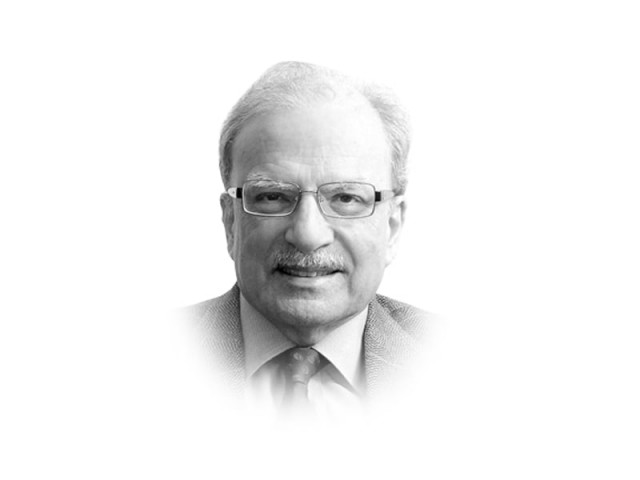Economics was the basis of Pakistan’s creation
In the creation of Pakistan, Muslims in northeast India found another opportunity for bettering their lives

The writer is a former caretaker finance minister and served as vice-president at the World Bank
The book, in dealing with Pakistan’s relations with the United States, covers a lot of ground, from the country’s founding to its current precarious situation. In the conversation with me, he questioned the political logic which led to the creation of Pakistan. Muhammad Ali Jinnah, he suggested, should have known that if his demand for the creation of an independent state was accepted, it would leave a significant number of his co-religionists behind in the Hindu-dominated independent India. A smaller minority would find their lives even more difficult in a country in which the Hindus would be even more dominant. This assertion by the former ambassador led me to ask the obvious question: was Pakistan’s creation a mistake? He said it was. I thought and told him so that this was an extraordinary statement by a person who had represented as its ambassador a country he believed was mistakenly created.
His other argument was developed in much greater detail at the house of a rich Indian businessman where the audience was presented his book so that it could be signed by the author. His speech on the occasion concerned Pakistan’s inability to live with its four neighbours — Afghanistan, China, India and Iran as well as with the United States, the country’s long-time benefactor. Including China in the list was puzzling but he said that Beijing had sent some strong messages to Islamabad about the latter’s alleged support to the dissidents in the country’s autonomous region of Xinjiang.
Both arguments need to be considered carefully since they have started a conversation in the American capital about the feasibility of what is sometimes called the ‘idea of Pakistan’. By pursuing the Islamic ideology as the basis of nationhood, the former ambassador thought that Pakistan itself had posed an existential threat to itself.
I responded to these views by saying that Pakistan was created not because its founding fathers thought that ‘Islam was in danger’ but for entirely economic reasons. The present rise of extremism is also owing to economic and political reasons. Those who follow it are not fighting a war of faith with the Pakistani state or the West. These people resent their exclusion from political and economic systems — both dominated by narrow elites — and some of them have opted for extreme violence as the preferred form of expression.
In order to understand the direction in which we should go, we must carefully understand why the country in which we live and of which we are citizens was created. The Pakistan Movement was largely the result of economic factors; religion intervened since the Muslims feared that they will be discriminated against on account of their faith. In the 1940s, when Muhammad Ali Jinnah and his political associates raised the demand for Pakistan, British India had a population of 400 million of which 100 million followed Islam. Two parts of this community, one in the northwest of the British Indian colony and the other in the northeast, accounted for 70 per cent of this community; the remaining 30 per cent was dispersed all over in what were called the Muslim minority provinces.
There were significant socioeconomic differences between the northwestern (today’s Pakistan) and the northeastern (today’s Bangladesh) Muslim communities. In the northwest, the Muslim community was led mostly by the elite who had developed a good working relationship with the British administration in India. It was confident that once the British left, they would be able to work out an arrangement with the elite that took power in the country. This was the reason why Punjab was such a late convert to the idea of Pakistan and a plebiscite had to held in the Frontier Province (today’s Khyber-Pakhtunkhwa) before its people could be persuaded to join Pakistan.
The situation in the northeast was entirely different. There the Muslim population had earlier persuaded the British to partition Bengal into two parts; a Muslim east with the capital at Dhaka and a Hindu west with the capital at Calcutta. This partition was annulled in 1911, creating an enormous amount of resentment among Muslims who felt that they would once again face economic obstacles put in their way by the economically dominant Hindu community. In the creation of Pakistan they found another opportunity for bettering their lives. The first mass movement in favour of Pakistan occurred in Bengal and gave impetus to the drive for the creation of Pakistan.
Published in The Express Tribune, January 12th, 2015.
Like Opinion & Editorial on Facebook, follow @ETOpEd on Twitter to receive all updates on all our daily pieces.















COMMENTS
Comments are moderated and generally will be posted if they are on-topic and not abusive.
For more information, please see our Comments FAQ